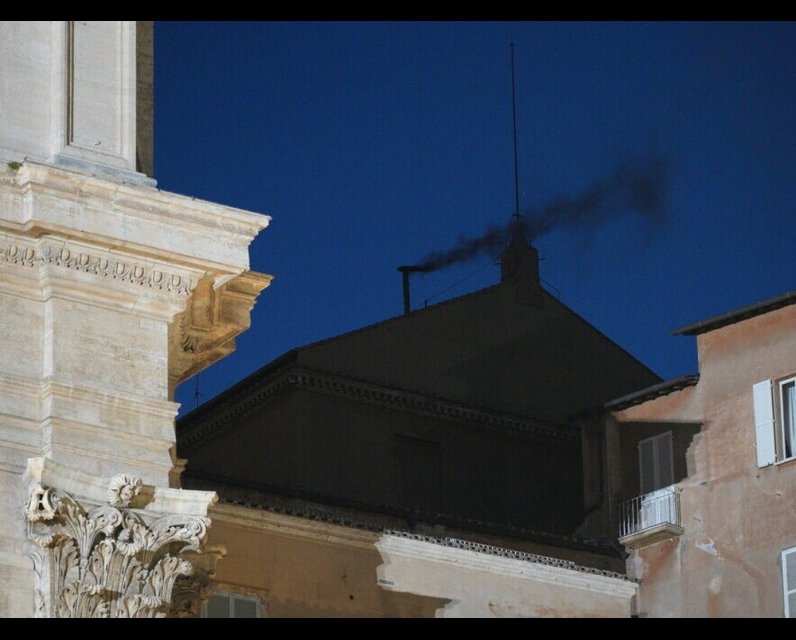Source Feed: National Post
Author: Stewart Lewis
Publication Date: May 8, 2025 - 08:00
What's in a 'papal name' and what the new pope's choice could mean for the church
May 8, 2025

The significance of a papal name lies in its symbolic power and the message it sends about a new pope’s intentions, priorities, and the direction he hopes to set for the Catholic Church.
When a new pope is elected, one of his first acts is to
choose a new name
. It’s a tradition dating back to the early Middle Ages. This name is not required by doctrine but has become a deeply rooted custom.
The chosen name often honours a saint, a previous pope, or a particular legacy the new pontiff wishes to emulate.
How do popes choose a papal name?
Pope Francis selected his name to
honour St. Francis of Assisi,
signalling a focus on humility, care for the poor, and environmental stewardship. Similarly, Pope John Paul I
combined the names of his two immediate predecessors
to signal continuity and commitment to their reforms.
Ultimately, the papal name serves as a
public declaration of the new pope’s vision
and the values he intends to emphasize during his papacy.
It is closely watched as an early indicator of whether the new leader will
continue the work of his predecessors or chart a new course
for the Church.
Do popes ever choose names that have never been used?
Popes
rarely choose a name that has never been used before
. In fact, before Pope Francis in 2013, it had been over 1,000 years since a pope — Pope Lando in 914 — selected a completely new name.
Most popes opt for names with
historical or spiritual significance
. There are, however, several unique papal names from the early centuries that have never been repeated, such as Lando, Romanus, and Formosus.
How might a pope’s cultural background affect his choice?
Different cultures have influenced the choice of papal names in several ways, especially as the Church became more global. In the early centuries, popes from outside Italy — especially from France and Germany — often adopted more traditional or Italian-sounding names to align themselves with their Roman predecessors and the local culture of the papacy. This practice helped foster unity and continuity within the Church.
In modern times, as the
College of Cardinals has become more international
, there is increased potential for popes to choose names that reflect their own cultural backgrounds or honour saints and historical figures important in their home regions.
A pope from Africa or Latin America might select a name associated with early non-Italian pontiffs or saints from those regions to highlight the Church’s diversity and global reach.
Pope Francis, from Argentina, chose a name never before used, making a break from European tradition and emphasizing humility and care for the marginalized, values resonant across cultures.
Overall, while
no formal rules
require popes to choose names based on cultural background, their choices often reflect a desire to reflect their heritage, inclusivity or connect with the broader global Church.
Could a papal name influence the Catholic Church’s relations with other faith traditions?
The connotations of a papal name can significantly
shape the new pope’s relationship with other religious leaders
by pointing to his intended approach to interfaith dialogue, reform, tradition, or reconciliation.
If a pope chooses a name associated with openness, peace, or past efforts at unity, it can foster goodwill and foreshadow a willingness to engage with leaders of other faiths.
Conversely, names linked to periods of conflict or rigid doctrine, like “Pius,” may be
interpreted as a sign of traditionalism or caution
, potentially making interreligious collaboration more challenging.
Have some papal names caused controversy?
Some papal names have been considered
controversial
due to their associations with problematic historical figures or events.
The name “John XXIII” was controversial because it had previously been used by a 15th-century antipope, leading to confusion and debate when Cardinal Angelo Roncalli chose it in 1958.
No pope has ever chosen the name “Peter II,” likely out of respect for Saint Peter, the first pope, and to avoid controversy or the appearance of rivalry with such a foundational figure. However, some antipopes have used the name “Peter II,” which further adds to its contentious nature.
Certain names, like Benedict, have been used by both legitimate popes and antipopes, sometimes creating confusion and controversy in papal history.
Some papal names are avoided due to their association with
notorious or scandalous popes
, such as Alexander VI or Boniface VIII, whose papacies were marked by corruption or conflict.
Our website is the place for the latest breaking news, exclusive scoops, longreads and provocative commentary. Please bookmark nationalpost.com and sign up for our daily newsletter, Posted, here.
The province's Special Investigations Unit has ended an investigation into a serious hand injury received in an Ottawa Police Service squad car in January. Read More
May 8, 2025 - 14:56 | Norman Provencher | Ottawa Citizen
Alain Bellefeuille, accused of murdering an OPP sergeant and attempting to murder two constables during a wellness check gone wrong in 2023, testified Thursday that he woke up that morning to the sound of banging and the shine of a flashlight, and immediately thought there were intruders outside his home.
May 8, 2025 - 14:43 | | CBC News - Ottawa
OTTAWA — The federal NDP will not be able to rely on hefty campaign reimbursements from Elections Canada to fill its party coffers after its worst-ever election result.
Only 46 NDP candidates out of 342 received 10 per cent or more of the votes that would make them eligible for a partial reimbursement of paid election expenses such as travel, salaries, accessibility expenses and other costs associated with the campaign.
This suggests that the party will receive possibly millions less in electoral expense refunds than in the previous two elections, where over 230 candidates met the...
May 8, 2025 - 14:34 | Catherine Lévesque | National Post



Comments
Be the first to comment